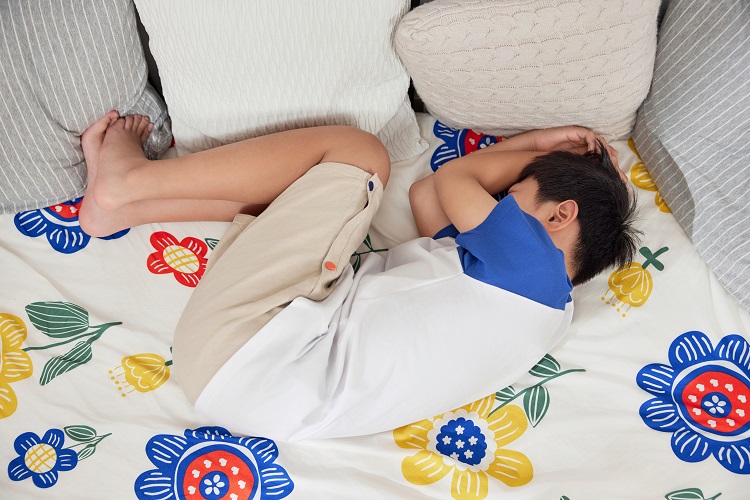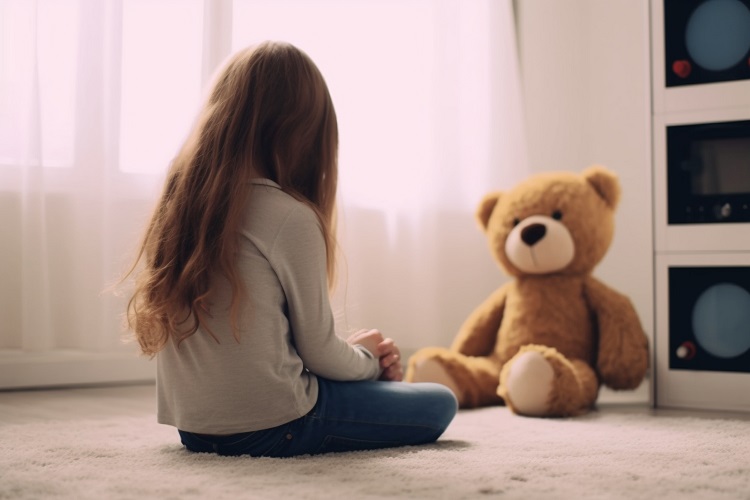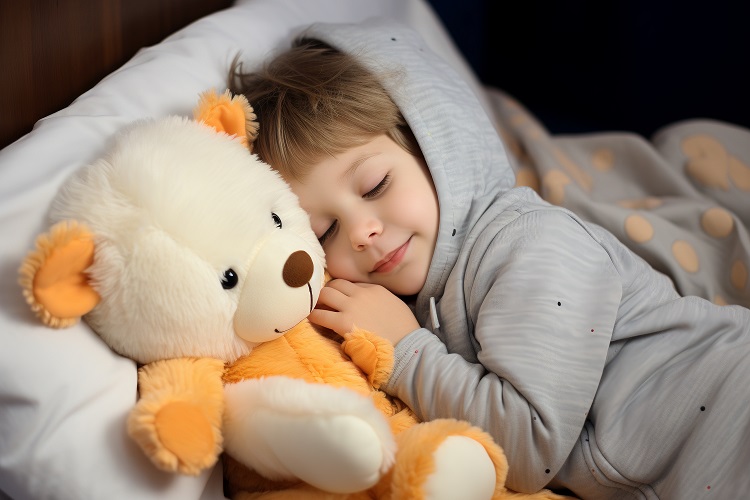News& Information
-
Medical Trends
 Home -> News& Information -> Medical Trends
Home -> News& Information -> Medical Trends
Children Sleep Difficulties
Are restless nights affecting your children health?
Sleep difficulties impact both children and adults, leading to problems with focus, mood, learning and overall well-being.
In this article Dr. Mike explains the causes of sleep struggles in children, their effects on their daily life, and practical solutions to help them and your family get the rest you need!

Physical and Emotional aspects of Insomnia in Children
Insomnia as one of the forms of sleep disorder which may be accompanied by other mental disorder including major depression and other more serious forms of mental disorder. For other forms of sleep disorders which relates to breathing difficulty while sleeping and apnea its important to rule out physical causes, like snoring and sleep apnea, which a physician specialist can assess through overnight sleep studies. Additionally, Ear, Nose, and Throat specialist or ENT physician may also check for any different abnormalities.
Emotional factors which often play a significant role in insomnia in children and or adults, is evaluated by psychologist through personality and other forms of psychological assessments.
Some types of sleep disorders:
• Trouble falling asleep
• Waking up in the middle of the night and not being able to fall back asleep
• Sleeping too much
• Sleepwalking
• Insomnia caused by medical conditions or medications
• Sleep apnea or breathing difficulties
• Irregular sleep patterns
• Several other forms of sleep disorders
Brain Waves Matter

Brain’s electrical activity, called brain waves, affects how we function—whether we’re relaxed, focused, or alert. There are several kinds of brain waves and each has different unique function. For instance one kind of brain wave represents a relax state, while other waves indicate different states, including being in awake state, deep sleep, daydreaming, attentive, concentrating, thinking, emotional processing, memory and problem solving.
In fact, child or adult who suffer from insomnia experience brain waves that differ significantly from those who sleep well. Certain brain waves that should quiet down during sleep stay active in individuals with insomnia, leading to restless nights.
Brain Waves of Children with ADHD and Autism
Children with ADHD and Autism may have different brain wave patterns compared to others, which can affect sleep as well as their other functions. For example, if certain brain waves are fast or slow which in fact should be the opposite in their original function, would have certain negative implication for these children in their learning, concentrating, memory, emotional regulation and behavior.
For children it is a good idea to consult a child neurologist for an Electroencephalogram or EEG assessment to study these children brain waves to rule out any presence of seizure activity, which can sometimes cause short lapses in awareness and affect a child's sleep, emotion, learning and behavior. This assessment also can help child neurologist to prescribe certain medication which will be helpful to reduce or stop such seizures. EEG is a simple procedure as ECG which is used for checking heart function but for EEG several electrodes are placed on top of scalp to assess brain waves activities to rule out different neurological problems including seizures. The type of seizure which some children might suffer is called a Petit mal or Absence seizure, lasts only a few seconds and can cause a brief loss of awareness.
Epilepsy which includes different kinds of seizures, can impact both the physical and emotional well-being of children and adults. Petit mal seizure which sometimes happens in children are different from more intense seizures like Tonic-Clonic seizures, which involve physical convulsions. Epilepsy in children can affect their learning, emotion, behavior, memory, attention, cognitive processing, and mood.
Common Sleep Problems in Children with ADHD and Autism

Insomnia in children with ADHD and Autism can be caused by anxiety (like separation anxiety), depression, medication side effects, restless leg syndrome, bed-wetting, noise, light, overstimulation, fear of the dark, sleeping alone, nightmares, night terrors, and hyperactivity. Autistic children may also struggle with anxiety due to feelings of isolation, repetitive behaviors, or difficulties in processing information.
By understanding these issues, parents can take proactive steps to help their children and themselves sleep better in which will lead to their overall wellbeing.
Child psychologist, by interviewing the child, parents and perform certain kinds of psychological assessment to assess the emotional aspects which lead to insomnia in children and provide the combination of treatment and training to improve their sleeping.
Tips to improve better sleep in children
• Stick to a regular sleep schedule
• Limit screen time few hours before bedtime
• Create a quiet and dark sleep environment
• Avoid heavy meals before bedtime
• Exercise regularly but not close to bedtime
Tips for Better Sleep for Children with Autism
• Stick to a regular sleep schedule
• Limit screen time before bed
• Create a quiet sleep environment with less noise
• Control the smell, odors or aroma in the bedroom
• Choose soft material for bedding and pillow cover to reduce less tactile stimulation or sensitivity
• Light in bedroom need to be dim and not shinning. Generally, yellow color light is more calming
• The paint on bedroom walls in these children room need to have a calming effect
• Avoid heavy meals before bedtime
• Exercise regularly but not close to bedtime
Children sleeping issues which need attention
If child shows the following issue, parents need to make sure child is not afraid or anxious while sleeping. These issues include:
Child ask for bedroom light to be on while sleeping
Child ask for bedroom door to be open while sleeping
Child ask to sleep with one or both parents; specially at older age
Bedwetting
These signs might indicate general and or separation anxiety, complications of being bullied, school stress, family stress, parents’ marital conflict, often moving to different countries and many other factors. If the above problems continue to insist will require child psychologist to assess, treat and put end to the child suffering.
Treating Insomnia in Children
Effective treatment for insomnia often requires a personalized approach. While medications can help in the short term, they may lead to dependency and unwanted side effects.
Psychological Assessment of insomnia in children
Children benefit from social-emotional assessments combined with personality assessment included to understand each child unique needs as well as the underline emotional difficulties.
Holistic Treatment Options for children Insomnia – without medication

Wishing all Children and their families peaceful, restful nights, and a life filled with happiness and free from anxiety!




